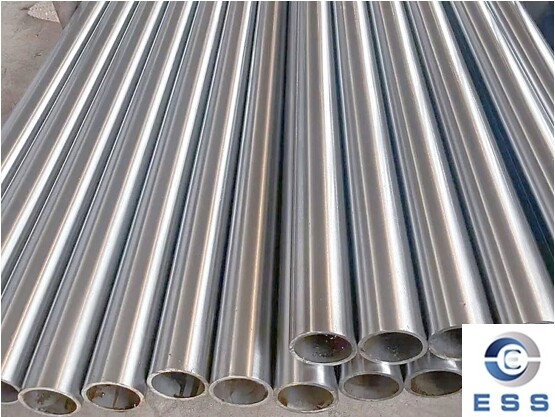
Precision
tube, as a high-precision, high-quality pipe material, are widely used in
various industrial fields. So, how long is the precision tube? This is a
question that many people are concerned about when purchasing or using
precision tubes. Below, let's take a detailed look at the length and related
knowledge of precision tubes.
Classification of precision tubes
Precision tubes can be divided into two
types according to the material: seamless
pipes and welded pipes.
1. Seamless precision tubes
Seamless precision tubes are made by hot
rolling, cold
drawing or cold rolling, and have high strength and precision.
2. Welded precision tubes
Welded precision tubes are made by welding
process, with relatively low prices, and are suitable for some occasions where
precision requirements are not high.
Common length of precision tubes
The length of precision tubes varies
depending on the application scenario, usually between 300 mm and 9000 mm.
Within this range, common lengths are 6 meters, 9 meters, etc. These lengths
can meet the different needs of petroleum, chemical, electric power, metallurgy
and other fields.
For example, in the fields of petroleum and
chemical industry, precision tubes usually need longer lengths for fluid
transportation; while in the fields of machinery and metallurgy, precision
tubes may be shorter in length to meet specific process requirements.
The following are some common precision
tube length specification tables for your reference:
|
Type
|
Length range (mm)
|
Application
|
|
Short tube
|
300-3000
|
Suitable for some short-distance
connections and transmissions
|
|
Medium-long tube
|
3000-6000
|
Suitable for medium-distance connections
and transmissions
|
|
Long tube
|
6000-9000
|
Suitable for longer distance connections
and transmissions
|
These specifications are formulated
according to market demand and manufacturing processes to meet the use needs of
different fields.
Length selection of precision tubes
1. Clarify the application scenario
First, clarify the application scenario of
the precision tube in order to determine the required length range. In the
fields of petroleum, chemical industry, etc., precision tubes usually require
longer lengths, such as 6 meters, 9 meters, etc., to meet the needs of
conveying fluids. In the fields of machinery, metallurgy, etc., the length of
precision steel tubes may be shorter to meet different process requirements.
2. Consider process requirements
Choose the appropriate length of precision
tube according to specific process requirements to ensure that production needs
are met.
3. Consult professionals
If you are not sure how to choose the
appropriate length of precision tube, you can consult professionals in related
fields or professional precision tube manufacturers for more accurate advice.
Factors affecting the length of
precision tube
The length of precision steel tube is
affected by many factors, mainly including the following aspects:
1. Production process
The production process of precision tube
includes hot rolling, cold drawing or cold rolling. Different production
processes have a certain impact on the length of precision tube. For example,
cold drawing process can produce longer and more precise precision tubes.
2. Material
The material
of precision tube will also affect its length. Generally speaking,
high-strength and high-precision materials can produce longer and more stable
precision steel tubes.
3. Application requirements
The final application requirements are the
key factors in determining the length of precision steel tube. Different
application scenarios have different requirements for the length of precision
tube, so the length of precision steel tube needs to be determined according to
actual needs.
Summary
In summary, choosing the appropriate length
of precision tube is of great significance to meet actual needs. In practical
applications, the appropriate type and length of precision tubes must be
selected based on the specific use environment and functional requirements.













 Eastern Steel Manufacturing Co.,Ltd not only improve product production and sales services, but also provide additional value-added services. As long as you need, we can complete your specific needs together.
Eastern Steel Manufacturing Co.,Ltd not only improve product production and sales services, but also provide additional value-added services. As long as you need, we can complete your specific needs together.










